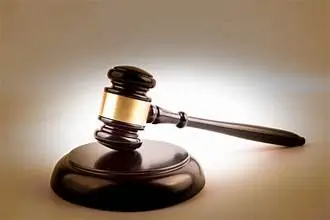A Bengaluru court on Wednesday directed the Karnataka Lokayukta to investigate the alleged Mysore Urban Development Authority (MUDA) scam, involving Chief Minister Siddaramaiah, his wife and others.
Special Court judge Santhosh Gajanana Bhat ordered the Mysore Lokayukta police to probe the matter and submit a report before the court within 90 days.
The Bengaluru court passed the order on a private complaint filed by Snehamayi Krishna, a day after the Karnataka High Court dismissed a petition filed by Siddaramaiah against the sanction granted by Governor Thaawar Chand Gehlot to prosecute him in the alleged multicrore scam related to MUDA.
The single-judge Bench of Justice M Nagaprasanna on Tuesday observed that Section 17A of the Prevention of Corruption (PC) Act did not require a police officer to seek approval in a private complaint registered under Section 200 of the Criminal Procedure Code or under Section 220 of the Bharatiya Nagarik Suraksha Sanhita (BNSS) against a public servant.
It was the duty of the complaint to seek such an approval, noted the High Court, adding that since the beneficiary of the acts was related to the family of the petitioner, the facts narrated in the petition undoubtedly required investigation.
The High Court further said that in normal circumstances, the Governor should act on the aid and advice of the Council of Ministers, however, in exceptional circumstances, he could make an independent decision. The present case projected such an exception, wherein the Governor was free to take an independent decision.
The single-judge Bench said it did not find any fault in the Governor exercising independent discretion to pass the impugned order, adding that this was not a case of semblance of no application of mind, but in fact, it was about an ‘abundance’ application of mind.
Noting that the grant of opportunity for personal hearing was not mandatory under Section 17A PC, the High Court granted liberty to the authority to decide on the issue.
The single-judge Bench delivered the verdict on a petition filed by Siddaramaiah seeking quashing of an order issued by Governor Gehlot granting sanction to prosecute him in the alleged MUDA scam.
Earlier on August 19, the High Court had directed the trial court to defer all proceedings against Siddaramaiah, based on the Governor’s sanction, till the next date of hearing before this Court.
Siddaramaiah had argued that the Governor’s sanction order to prosecute him was prima facie bereft of any reasons regarding his guilt. The Governor’s discretionary power in such cases was limited, he had contended.
Appearing for the Chief Minister, Senior Advocate Abhishek Manu Singhvi had argued that it was important to keep in mind the umbrella of statutory protections provided to an elected public servant paving way for an inquiry or investigation that could have very serious implications of diluting or unseating a mandate contrary to the elections.
It was not just a walk-in and walk-out system. There has to be a proper protective umbrella which should be given a full letter and spirit implementation, the Senior Counsel had noted.
He had further submitted that it would be a ‘mistake’ to suppose that the moment a Minister or a Chief Minister was involved in a case, the established jurisprudence of the Governor having extremely limited powers to act in his discretion was automatically overridden.
As per the Constitution, the discretionary ‘so-called exceptional powers’ of the Governor were limited and specific, he had added.
Singhvi had further argued that the offence took place sometime in 2005 and therefore, Section 17A could not be retrospectively applied in 2010. The Governor was now stating that he did not wish to file a reply on the grounds that specific dates of complaints were pending, added the Senior Counsel.
Section 17A of the PC Act pertains to an enquiry/inquiry/investigation of offences relatable to recommendations made or a decision taken by a public servant in the discharge of official functions or duties.
Representing the Office of the Governor, Solicitor General Tushar Mehta had argued that the Governor’s sanction was granted after an elaborate application of mind, after considering all the facts.
He said there was no requirement of the principles of natural justice at the stage of Section 17A, adding that non-issuance of notice even in one case would not have caused prejudice.
Since the Chief Minister was himself facing an allegation, the Governor could act at his own discretion and not on the aid and advice of the Cabinet or Council of Ministers, added the SG.
The complainants had earlier argued that the Governor’s sanction order against the Chief Minister may not be looked at as adversarial, but for ensuring purity in public administration.


